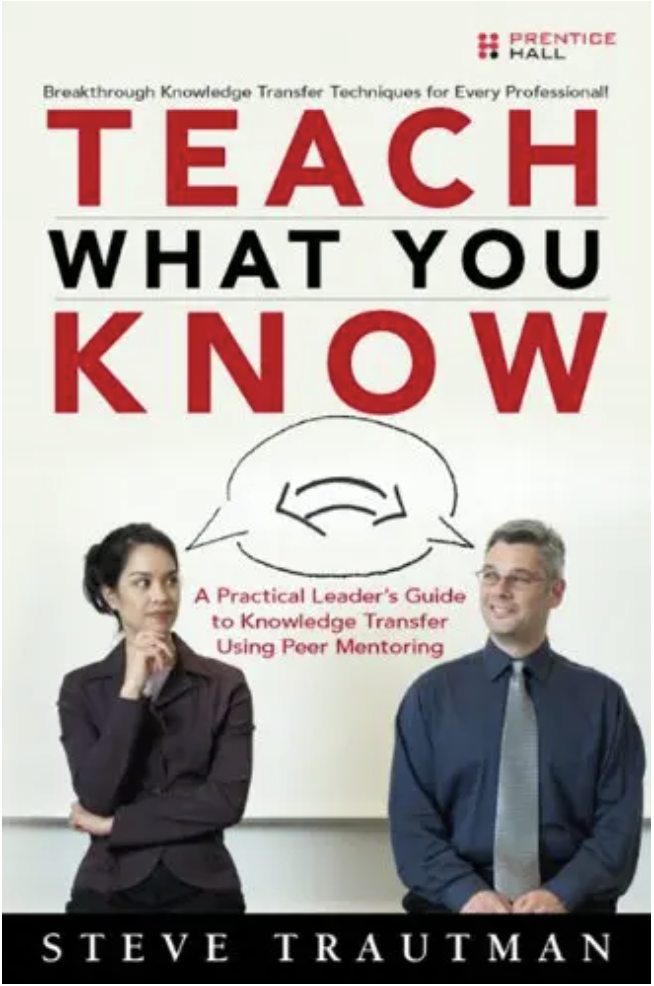Get Steve’s Books
Do You Have WHO It Takes?
Managing Talent Risk in a High-Stakes Technical Workforce
By Steve Trautman
Overview: How can you be sure you have enough of the right expertise and technical ability on your team to meet your business goals?
As a leader, you do your best to manage risk diligently in most business areas, but ''people risks'' are often held to a lower standard. The problem is real and growing, in part because you just don't know what to do about it. Whether leading a team, a department, a division, or a whole global company, managers and executives need a better way to think and talk about their critical talent needs. This isn't just about filling head count. You need to know what it costs in time and money to develop, replace, and/or align experts who have unique technical knowledge—and you also need to know what can go wrong in the meantime.
Insufficient skills and bench strength threaten every organization's productivity, innovation, and competitive edge. How can your strategy succeed without the right people—the scientists, engineers, technicians, designers, analysts, and other experts—to execute it? If you're looking for confidence, clarity, and speed backed by data, you don't have to settle any more.
Steve Trautman offers revolutionary yet practical ideas for every level of an organization (including the corporate board) so that you can manage talent risk with clear, measurable, and relevant data. This book goes far beyond academic theory to include a talent risk methodology, scripts for critical conversations, case studies, and useful tools derived from boots-on-the ground experience.
Teach What You Know
A Practical Leader’s Guide to Knowledge Transfer Using Peer Mentoring
By Steve Trautman
Overview: From Blah, Blah to Aha! Breakthrough Knowledge Transfer Techniques for Every Professional!
No matter where you work there are people with experience teaching people who need to learn. Everyone is part of this exchange yet few people know how to do it well. Now, there’s a comprehensive how-to manual for effective knowledge transfer: Teach What You Know.
Steve Trautman introduces simple, practical mentoring techniques he created for engineers at Microsoft, and has proven in many diverse organizations ranging from Nike to Boeing. This is real-world, get-it done advice, organized into a framework you can use no matter what you need to teach. Trautman provides common-sense tools to successfully pass along years or even decades of experiences: easy-to- use checklists, sample training plans, lists of questions, step-by-step procedures, and a start-to finish case study.
Teach What You Know will help you orient new employees, support transitions to new assignments and promotions, prepare for employee retirements, build teams, roll out new technologies, and even move forward after reorganizations and mergers. You’ll learn how to:
Create a plan for the entire knowledge transfer process
Clarify roles for each type of peer mentor in your organization
Set expectations for communication so you can mentor and still get your other work done
Organize what must be learned into manageable chunks
Develop a measurable training plan in less than an hour
Uncover the list of information and support that your apprentices can’t live (or at least learn) without
Explain the mysterious “big picture” to your apprentices
Create one-hour “lesson plans” in five minutes
Give a demonstration that is guaranteed to sink in
Help your apprentices take responsibility for their own learning
Make sure your apprentices have mastered what you’ve taught
Provide feedback that your peers will appreciate hearing
The Executive Guide to High-Impact Talent Management Powerful Tools for Leveraging a Changing Workforce
By Steve Trautman
Overview: How to Lead—Not Follow—When It Comes to Talent Management
In The Executive Guide to High-Impact Talent Management, David DeLong and Steve Trautman show leaders how to not only reduce the risks of talent shortages but also maximize the payoff of workforce and leadership development investments. The concept of “talent management” may have become commonplace in human resource circles, but a lot of leaders outside of HR have a nagging feeling their organization still isn’t getting their money’s worth from these investments. Leaders recognize the challenges with recruiting, developing and retaining top talent. They know that boomers are retiring and that younger workers must be onboarded efficiently. They also know that critical shortages exist for key positions in energy, healthcare, engineering, aerospace and government. But senior executives often don’t know what to do about these challenges. Increasingly, leaders are wondering: Do we have who it takes to achieve our corporate goals in the future?




